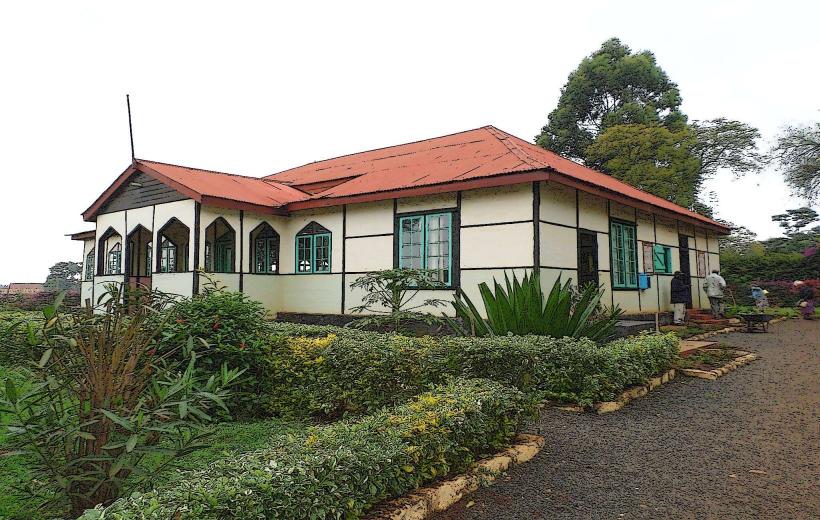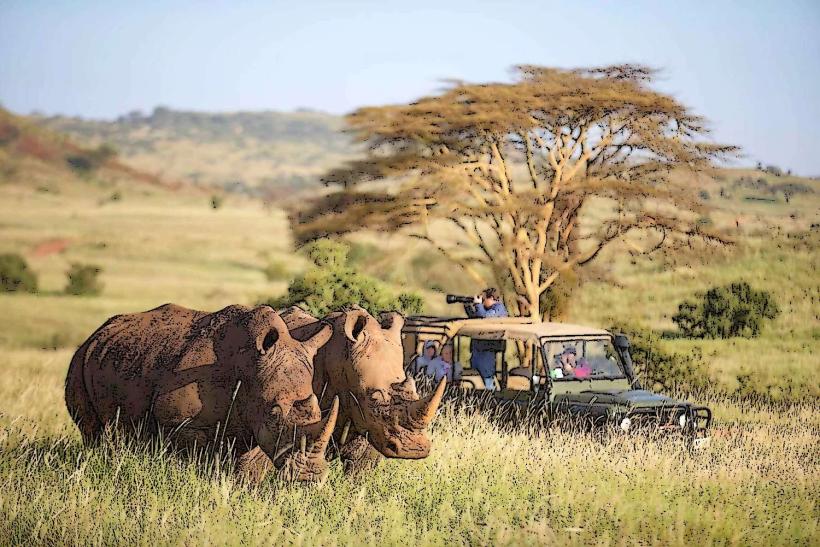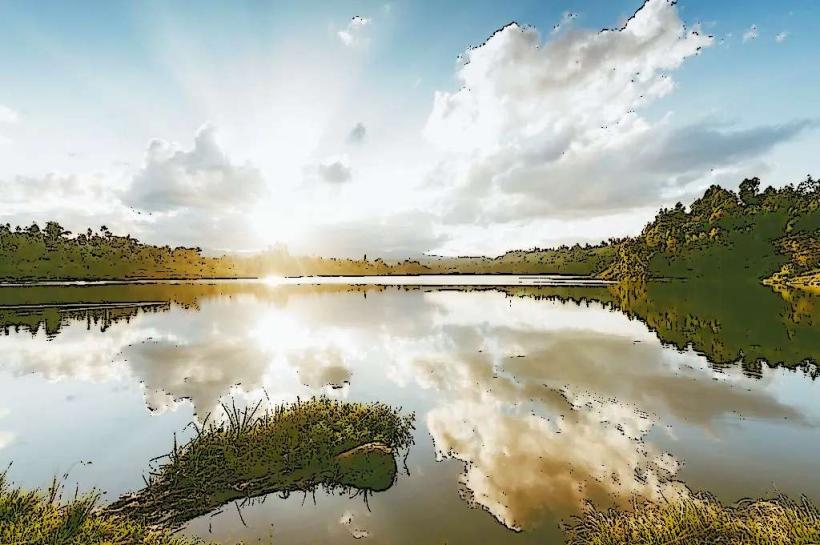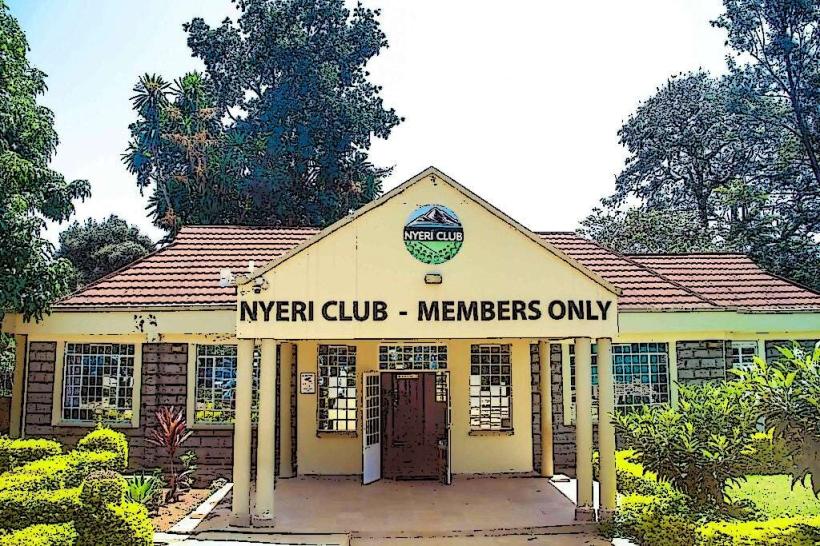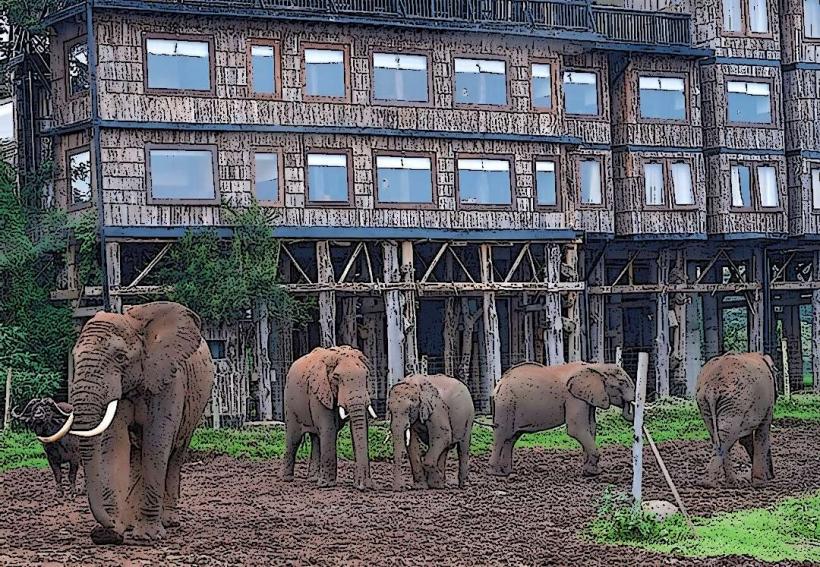Information
Landmark: Wajee Nature ParkCity: Nyeri
Country: Kenya
Continent: Africa
Wajee Nature Park, Nyeri, Kenya, Africa
Wajee Nature Park is a serene and scenic nature reserve located in Mukurwe-ini, Nyeri County, Central Kenya. It is situated approximately 160 kilometers north of Nairobi, between Mount Kenya and the Aberdare Range. The park covers an area of 10 hectares and was established with the aim of conserving local flora and fauna, particularly birds. Originally a coffee farm, it was transformed into a sanctuary by Reverend James Gakunju Gathigi, also known as Wa-G or Wajee.
Key Features and Significance
Birdwatching Paradise: Wajee Nature Park is renowned for its rich biodiversity, especially its impressive variety of bird species. The park hosts over 126 bird species, including the endangered Hinde’s Babbler, which is endemic to the Mount Kenya region. It is considered one of the top birdwatching destinations in Central Kenya. Migratory birds also visit the park, making it an exciting spot for bird enthusiasts year-round.
Wildlife: While the park is primarily known for its birds, it also provides shelter to various other species of wildlife. Visitors may spot animals such as side-striped jackals, genet cats, vervet monkeys, and bush babies, contributing to the park's overall ecological richness.
Nature Trails and Activities
The park features several nature trails that wind through lush forested areas, offering opportunities to observe both resident and migratory bird species. These trails are a great way to explore the natural beauty of the park, with each turn revealing new sights and sounds of the diverse ecosystem.
Guided Walks: For those interested in learning more about the park’s flora and fauna, guided walks are available. These tours are conducted by knowledgeable guides who provide valuable insights into the park's ecological importance and the bird species found within.
Accommodation Options
Wajee Nature Park offers various types of accommodation for visitors looking to stay overnight:
Cottages: Ideal for those seeking comfort and privacy, the cottages provide a homely environment with modern amenities for a pleasant stay.
Bandas: These are simpler, more budget-friendly lodging options that cater to those looking for a basic and affordable place to stay while exploring the park.
Camping: For those looking for a more rustic experience, the park offers camping facilities, allowing visitors to set up tents in a designated area. The campsite has access to a kitchenette, making it an excellent choice for those wanting to immerse themselves in nature.
Additional Amenities
Conference Facilities: The park also has a conference hall, which is suitable for meetings, corporate retreats, or community gatherings. The hall is available for hire, and it can accommodate various events.
Picnic Sites: Visitors can enjoy picnics at designated sites within the park, making it a perfect spot for families or groups looking to relax and enjoy the tranquil environment.
Restaurant: The park has a restaurant that serves both traditional Kenyan dishes and continental cuisine, allowing visitors to enjoy local flavors while taking in the natural beauty of their surroundings.
Rates (As of 2021)
Conservation Fees:
Adults: Ksh 200
Children: Ksh 100
Children under 5: Free
Accommodation:
Full Board: Ksh 4,500 per person sharing
Half Board: Ksh 3,500 per person sharing
Bed Only: Ksh 2,000
Bed and Breakfast: Ksh 3,000 per person sharing
Camping: Ksh 800
Conference Hall Rental:
High Season: Ksh 6,000
Low Season: Ksh 5,000
Location and Accessibility
Wajee Nature Park is easily accessible from Nairobi via the Nyeri-Karatina Road. The drive from Nairobi takes around 3-4 hours depending on traffic conditions.
Once in Karatina, visitors should take a left turn towards Mukurwe-ini Town. The park is located about 5 kilometers from Mukurwe-ini.
Cultural and Educational Significance
Wajee Nature Park is not just a natural preserve, but also an educational and cultural site. It helps in raising awareness about conservation, particularly the importance of protecting endangered species like the Hinde’s Babbler. The park also provides a peaceful environment for educational programs, nature studies, and research on wildlife conservation.
Best Time to Visit
The best time to visit the park for birdwatching is during the wet seasons (from March to May and October to December), as this is when migratory birds are most likely to be present. However, the park is open year-round and offers a pleasant experience during both the wet and dry seasons.
Conclusion
Wajee Nature Park is a hidden gem in Kenya, offering a combination of natural beauty, wildlife, and tranquility. Whether you're a nature lover, a birdwatcher, or someone looking for a peaceful getaway, the park provides a unique opportunity to connect with nature. With its diverse bird species, wildlife, and various accommodation options, Wajee Nature Park is a must-visit destination for those exploring the Central Highlands of Kenya.

